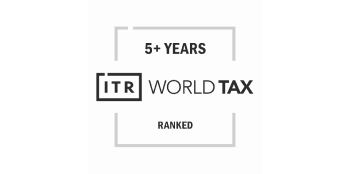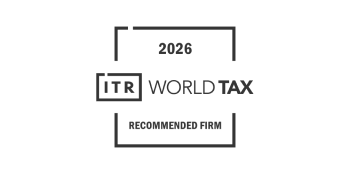


On August 19th, The U.S. Treasury’s Financial Crimes Enforcement Network (FinCEN)granted a second extension, until October 20th, 2025, for the implementation of orders prohibiting certain fund transfers involving three Mexican financial institutions—CIBanco, S.A., Institución de Banca Múltiple; Intercam Banco, S.A., Institución de Banca Múltiple, Intercam Grupo Financiero y Vector Casa de Bolsa, S.A. de C.V.—due to concerns over money laundering linked to drug cartels and opioid trafficking.
On June 25, 2025, the United States Financial Crimes Enforcement Network (FinCEN) of the U.S. Department of the Treasury issued an order directed at financial institutions operating within the United States, such as banks, brokerage houses, currency exchange businesses, and casinos, among others (the “Order”).
This Order prohibits the execution of fund transfers to or from three Mexican financial institutions: CIBanco S.A. (“CI Banco”), Intercam Banco S.A. (“Intercam”), and Vector Casa de Bolsa, S.A. de C.V. (“Vector” and, together with CI Banco and Intercam, the “Designated Financial Institutions”) since, according to the Order, they have been identified as primary sources of concern regarding money laundering in connection with the illicit trafficking of opioids, including fentanyl.
The Order is specifically addressed to U.S. financial institutions, designated as “covered financial institutions,” which include banks, brokerage houses, currency exchange businesses, and casinos, among others. These institutions must implement internal procedures to ensure compliance with the prohibition and take necessary measures to prevent any transfer of funds with the aforementioned Mexican entities.
The Order is not a criminal action against the involved Designated Financial Institutions; rather, it is an administrative measure that imposes restrictions on the covered U.S. financial institutions. It is important to note that the Order does not affect transactions conducted before its effective date; it only applies to transactions carried out after the effective date.
The start of the implementation of the Order has been extended, meaning it will now take effect on October 20, 2025. This period is intended to provide “covered financial institutions” with a transition period to adjust their systems and internal procedures. During this time, institutions must prepare to halt any fund transfers related to CIBanco, Intercam, or Vector, and consider this situation in fulfilling their anti-money laundering and counter-terrorism financing obligations.
Although the Order is expressly directed at “covered financial institutions” under U.S. law, it is foreseeable that its observance will extend to Mexican and foreign financial institutions that have points of contact with the U.S. financial system.
Due to the global interconnectedness of banking systems and the significance of U.S. jurisdiction in international operations, it is predictable that Mexican and foreign banks, directly or indirectly, will be compelled or will voluntarily decide to implement the stated restrictions to avoid sanctions, operational restrictions, or inclusion on lists of entities subject to restrictive measures. Therefore, even though the Order is not formally addressed to Mexican institutions, compliance may be required de facto by correspondents, counterparties, or intermediaries operating in or with the United States.
The Order, although referring to transfers to and from the Designated Financial Institutions, could have collateral effects on accounts held by these institutions in other financial institutions, both domestic and foreign. This includes accounts opened as direct holders, as well as those where the institutions act as trustees.
Accounts in which the Designated Financial Institutions act as trustees could be affected, to the extent that the Order is interpreted as applicable to funds managed under trust arrangements, which could compromise the availability of such funds for trustees or beneficiaries.
The issuance and dissemination of the Order could trigger a loss of confidence in the solvency and liquidity of the Designated Financial Institutions, generating a phenomenon known as a “run on the bank,” consisting of the massive and simultaneous withdrawal of deposits by clients. If the Designated Financial Institutions are unable to meet their payment obligations, this could result in grounds for revocation of their authorization and/or banking intervention.
In this regard, on June 26, 2025, the National Banking and Securities Commission (“CNBV”) decreed the temporary managerial intervention of CIBanco and Intercam. This was done to protect the interests of the public depositors and creditors by replacing the administrative bodies and legal representatives of both institutions, given the implications the Order may have on them.
Considering the recent Order, it is essential for those with relationships with the Designated Financial Institutions to take preventive measures and carefully review their operations and business relationships to strengthen risk management and regulatory compliance:
It is important to note that the Order, although directed at U.S. institutions, may have collateral effects on Mexican institutions and their fiduciary operations, increasing scrutiny and the possibility of sanctions.
In this context, it is important to clarify that trust assets constitute a separate and segregated estate from the general balance sheet of these institutions, in accordance with the principle of the autonomous estate of the trust. Therefore, the assets affected by trusts are not included into the assets of the Designated Financial Institutions and must be managed for the benefit of the trustees or beneficiaries, except where there are credits granted to these institutions derived from fiduciary administration.
For any questions or comments, you can contact our expert team.
Awards
























